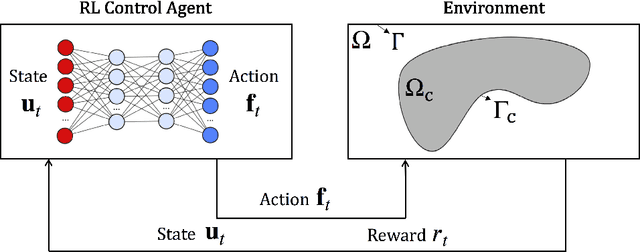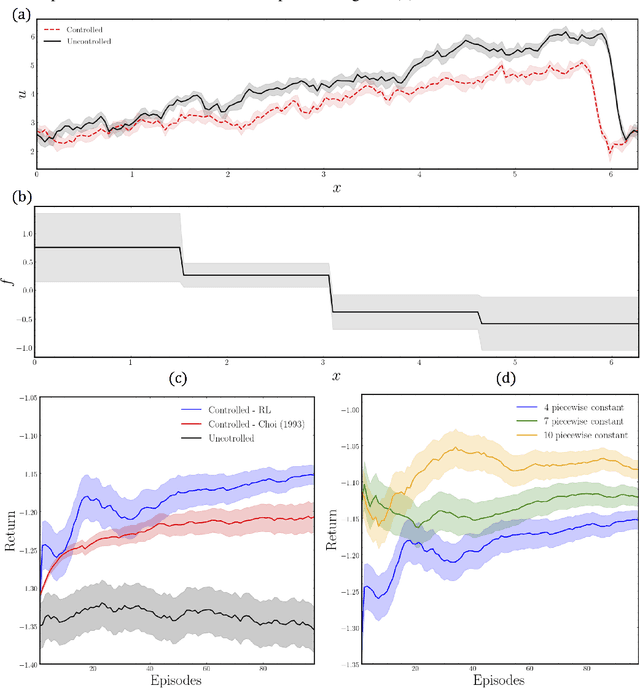Faraz Khoshbakhtian
Deep Reinforcement Learning for Online Control of Stochastic Partial Differential Equations
Oct 23, 2021



Abstract:In many areas, such as the physical sciences, life sciences, and finance, control approaches are used to achieve a desired goal in complex dynamical systems governed by differential equations. In this work we formulate the problem of controlling stochastic partial differential equations (SPDE) as a reinforcement learning problem. We present a learning-based, distributed control approach for online control of a system of SPDEs with high dimensional state-action space using deep deterministic policy gradient method. We tested the performance of our method on the problem of controlling the stochastic Burgers' equation, describing a turbulent fluid flow in an infinitely large domain.
COVIDomaly: A Deep Convolutional Autoencoder Approach for Detecting Early Cases of COVID-19
Oct 06, 2020



Abstract:As of September 2020, the COVID-19 pandemic continues to devastate the health and well-being of the global population. With more than 33 million confirmed cases and over a million deaths, global health organizations are still a long way from fully containing the pandemic. This pandemic has raised serious questions about the emergency preparedness of health agencies, not only in terms of treatment of an unseen disease, but also in identifying its early symptoms. In the particular case of COVID-19, several studies have indicated that chest radiography images of the infected patients show characteristic abnormalities. However, at the onset of a given pandemic, such as COVID-19, there may not be sufficient data for the affected cases to train models for their robust detection. Hence, supervised classification is ill-posed for this problem because the time spent in collecting large amounts of infected peoples' data could lead to the loss of human lives and delays in preventive interventions. Therefore, we formulate this problem within a one-class classification framework, in which the data for healthy patients is abundantly available, whereas no training data is present for the class of interest (COVID-19 in our case). To solve this problem, we present COVIDomaly, a convolutional autoencoder framework to detect unseen COVID-19 cases from the chest radiographs. We tested two settings on a publicly available dataset (COVIDx) by training the model on chest X-rays from (i) only healthy adults, and (ii) healthy and other non-COVID-19 pneumonia, and detected COVID-19 as an anomaly. After performing 3-fold cross validation, we obtain a pooled ROC-AUC of 0.7652 and 0.6902 in the two settings respectively. These results are very encouraging and pave the way towards research for ensuring emergency preparedness in future pandemics, especially the ones that could be detected from chest X-rays.
 Add to Chrome
Add to Chrome Add to Firefox
Add to Firefox Add to Edge
Add to Edge